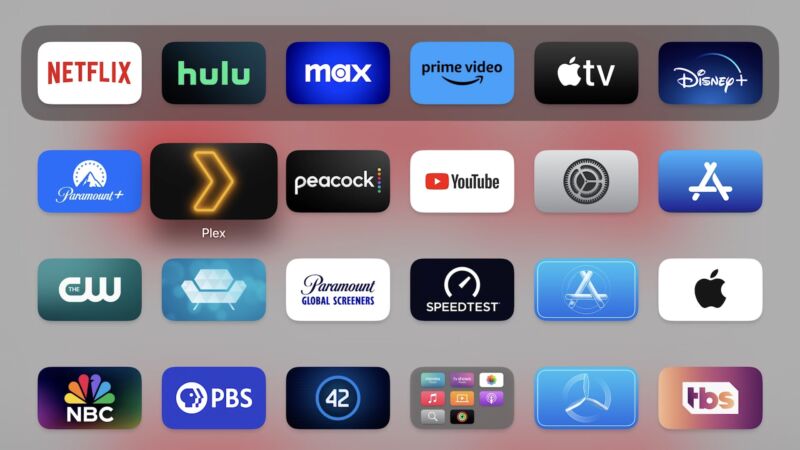
Apple’s tvOS betas are usually among its least exciting; the Apple TV’s operating system has changed so little in the last decade that the most exciting thing to happen to it in recent memory is an extra column of icons.
But this week’s tvOS 18 beta 3 release includes a hidden feature that might be exciting for smart speaker enthusiasts, if not for people who still want their Apple TV boxes to develop exciting new capabilities. 9to5Mac has discovered a touchscreen interface (codenamed “PlasterBoard”) inside of the latest beta, a sign that Apple is testing alternate input mechanisms for software that is currently manipulated via remote control and voice.
Last week, MacRumors also discovered a reference to a device called “HomeAccessory17,1” in Apple’s beta software, a naming convention similar to the “AudioAccessory” device identifiers that Apple uses for HomePod speakers. Together, these developments suggest that Apple is working on a version of the HomePod with an integrated touchscreen, a device that rumors have suggested could launch in 2024 or 2025. The company has reportedly been working on a smart home device with a screen since at least 2021.
MacRumors also points out that the 17,1 model identifier could imply that the new HomePod is being powered by Apple’s upcoming A18 chip—model identifiers across Apple’s product lineup are normally tied to chip generation rather than product generation, which is why the Vision Pro (for example) is called “RealityDevice14,1” rather than “RealityDevice1,1.” Using an A18 will presumably give a new HomePod the necessary speed to support upcoming Apple Intelligence features, including a new and improved version of Siri.
All HomePod speakers have been running a forked version of tvOS since version 13.4 of the HomePod software was released in early 2020, which is why HomePod-related leaks seem to be showing up in tvOS-related code. This would also explain why Apple would use tvOS as the basis for a HomePod with a screen rather than a version of iPadOS.
Apple’s take on an Amazon Echo Show
A version of tvOS running on a tablet-style device could use more than just a touch-driven interface to reach its full potential—a tvOS version of Safari would be useful for browsing recipe sites or casual reading while you’re doing something else, for example. However, what Apple adds depends on the form that the screen takes.
Some rumors have suggested that it would be a circular panel that replaces the swirling LEDs on the top of current-generation HomePods, but Bloomberg’s normally reliable Mark Gurman has described the display as “iPad-like,” suggesting that it could look more like a version of Amazon’s Echo Show. Amazon advertises its Show devices as digital photo frames, miniature TVs, and general kitchen aids, and Apple’s pitch for a screen-ified HomePod would likely feature a lot of the same uses.
Amazon has already released multiple generations of Echo Show devices, and Google has made a couple of stabs at the category, too. A HomePod with a screen, whether released in 2024 or 2025, would be far from the first of its kind. However, the HomePod wasn’t a cutting-edge product when it was released either, and it’s still managed to carve out a niche.
We don’t know what a HomePod with a screen might cost, but assuming it includes a HomePod-esque speaker, an iPad-esque screen, and a cutting-edge iPhone processor, it seems likely that it will be priced well above the $299 Apple currently charges for the full-size screen-less HomePod. Apple’s original $349 HomePod flopped partly because it was priced too high relative to competitors and because it didn’t do a whole lot—a speaker that did more things could probably be priced higher without drawing as much criticism.
https://arstechnica.com/?p=2035899

